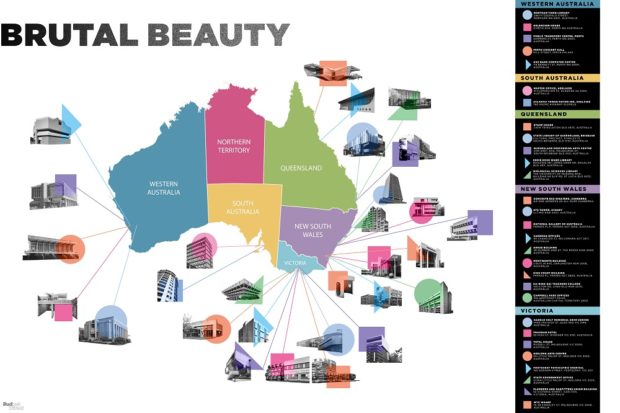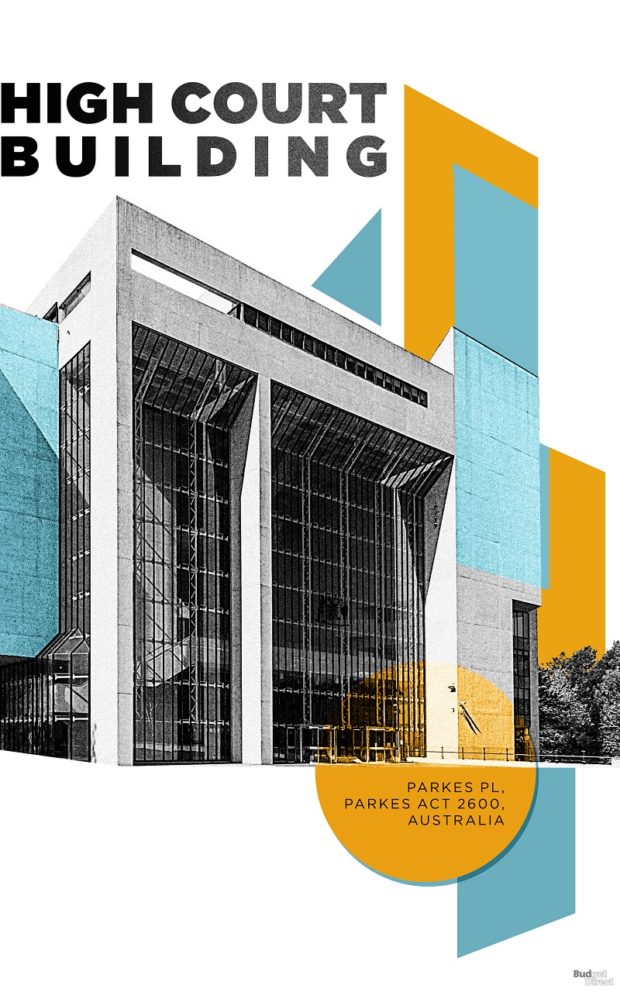Very few forms of architecture are as divisive as brutalism. For decades, brutalist buildings were generally seen as concrete monstrosities from a regrettable era and many of them around the world were demolished. However, recent years have seen a brutal comeback and a renewed appreciation for the aesthetics and ethics of Brutalism, which became popular around Europe in the 1940s before spreading further afield over the next 20 years.
In the 1960s, it reached Australia and while some buildings have fallen over the years, cities like Melbourne, Canberra and Sydney still have many fine examples of Brutalist architecture. Here are some of Australia’s most famous examples of Brutalism that you can still go and see:

High Court Building, Canberra
Canberra’s High Court Building dates back to 1980 and is an example of late modern Brutalism as well as demonstrating a Brutalist method that sounds very Australian. It’s called bush-hammering and it’s where the concrete is battered to flake the surface and expose the aggregate in the concrete and it’s a technique used on the external and internal walls here.

Harold Holt Memorial Swim Centre, Melbourne
Harold Holt was a Prime Minister who died from drowning in 1967 while this 1920s swimming centre was being renovated in a Brutalist style. So it seems appropriately brutal that they named it after him, considering how he died. It’s on the Victorian Heritage list, along with its Diving Tower and it’s also one of Melbourne’s most popular aquatic facilities with over 40,000 visitors a year.
Perth Concert Hall, Perth
When you think of famous Australian concert halls, Sydney Opera House is what comes to mind rather than Perth Concert Hall. Built in the early 1970s overlooking the Swan River, it is famous for its incredible acoustics and, of course its Brutalist design. In 2016 it finally got the plaudits it deserved with a National Architecture Award for endurance.
Sirius Building, Sydney
The Sirius Building may not have started off as a traditional Brutalist design, with its roots more influenced by the modular, geometric style of Japanese Metabolist, but its use as social housing and poured concrete shows how Brutalism became a part of its design. Over the years it has been threatened with demolition but it seems to have been saved by its new owners.
Total House, Melbourne
Function is key to Brutalist architecture and Total House is certainly functional, being a large multi storey car park and office building. With its raw materials exposed and use of empty space, while the office building is cantilevered above the car park. The basement is a former theatre that’s now a live music venue.
Concrete bus shelters, Canberra
Not one building but several scattered across Canberra, these bus shelters were added in the 1970s and there’s still 450 of them in use. They’re known as ‘bunkers’ and are simple and functional – designed to offer shelter while making it easy for people to see approaching buses – while also being quite stylish in their cylindrical shape.
Brutalism is here to stay in Australia, so which of these buildings will you go to visit first?
